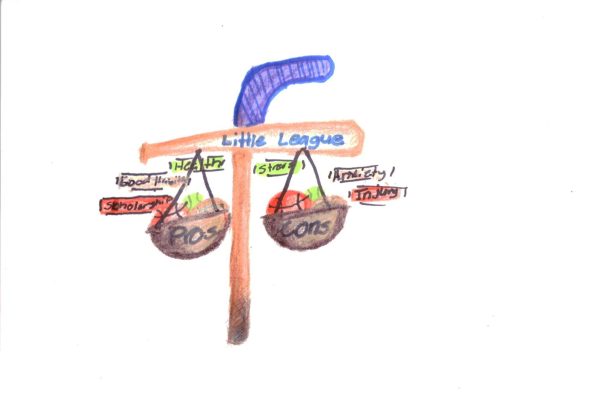Quiet quitting: lazy or justified?
Undoubtedly, the Covid-19 pandemic severely impacted Americans. Employees were forced to work from home, a stark change from their supervised and sometimes stuffy offices. Now that people are off Zoom calls and have returned to their offices, companies are dealing with the diminished work ethics of their employees.
This diminished work ethic has been given the term”quiet quitting”, meaning disengagement from a job and performing at a low rate. Refusing to work weekends, only doing necessary tasks, and putting in minimal effort are all traits of quiet quitting.
As primarily stated, the most disengaged workers tended to be Gen Z and younger Millennials, as they felt there wasn’t a strong workplace connection with their employers.
A poll conducted by The Hill reports that most of these younger generations do not feel like there is someone at work who cares for them or helps them develop. This is an issue because employees should not have to be babied and encouraged to complete a job they are being paid to do.
This new form of protest has been negatively affecting companies due to the poor work ethic it encourages. Employees are hired and paid to do their jobs, and when they fail to be productive in a workplace setting, it affects the business and the other employees around them.
Offices are not for napping, video games, or texting, they are for working and should be treated as such.
Quiet quitting is a larger issue than most expect. According to a study conducted by Gallup, over 50 percent of workers answered to being “quiet quitters”. The poll also reported that employee disengagement increased tremendously during the pandemic, and continued after workers returned to their offices.
Quiet quitting also removes the emotional tie between someone and their work. Considering the amount of time people invest in their jobs, they should be emotionally invested and produce work they are proud of. When someone isn’t driven to do their work, the quality of what they produce diminishes.
Quiet quitting is a huge waste of resources and office space. If someone is not dedicated to their job, why are they even working there? Tasks should be completed efficiently and in a timely manner, and when they are not, it makes it difficult for companies to function.
This especially becomes a problem when someone “quiet quits” a job that centers around others. If a teacher decides to put less effort into their job, a whole class of students may deal with lower quality education, fewer resources, and suffer the results of a disengaged educator.
Contrary to the belief that quiet quitting is a form of laziness, many younger generation workers argue the goal is to achieve a healthier work-life balance.
According to ZDNET, people can be dedicated and conscientious workers without taking their work outside of the office. Employees are taking a firm stand when it comes to exceeding office hours or completing tasks outside of their job descriptions.
In a post-Covid world, many younger generation workers feel that their lives revolve around their work. Employees struggle with burnout, stress, and presenteeism; working longer hours. By setting these boundaries, they are able to achieve a healthy and balanced lifestyle, free of the additional stress work can provide.
In addition, some employees feel that it’s not worth it to make the extra effort at work, especially when they are paid less than anticipated.
Tayo Bero for The Guardian says employees have had enough on their plates dealing with a bad economy and the Covid-19 pandemic. They feel that working is a hard process, especially when employees are treated poorly and have to work for long hours a day with minimal breaks. With these issues, it makes it difficult for workers to find the motivation to excel in their careers, especially when they are being paid the same for doing the bare minimum.
A lot of people do not want to work for more than what they are paid for, and from this comes quiet quitting.
Nevertheless, that is just the reality of the work world. Technology and the ways business is conducted are evolving every day, yet there are still many flaws.
Instead of quiet quitting, employees can find other ways to protest. Actions such as setting up meetings, writing directly to their bosses, and bringing more awareness to the issues that they face in the office can help improve the overall work environment and encourage the demands of employees to be met.
Additionally, employers can take steps to ensure their employees are staying on task and prevent quiet quitting from occurring in their offices. Forbes recommends putting out suggestion boxes, offering pay raises, keeping a good environment in the office, and treating employees with respect are ways to combat this issue and improve work experiences for everyone.










